home > articles > A Novel Conspiracy
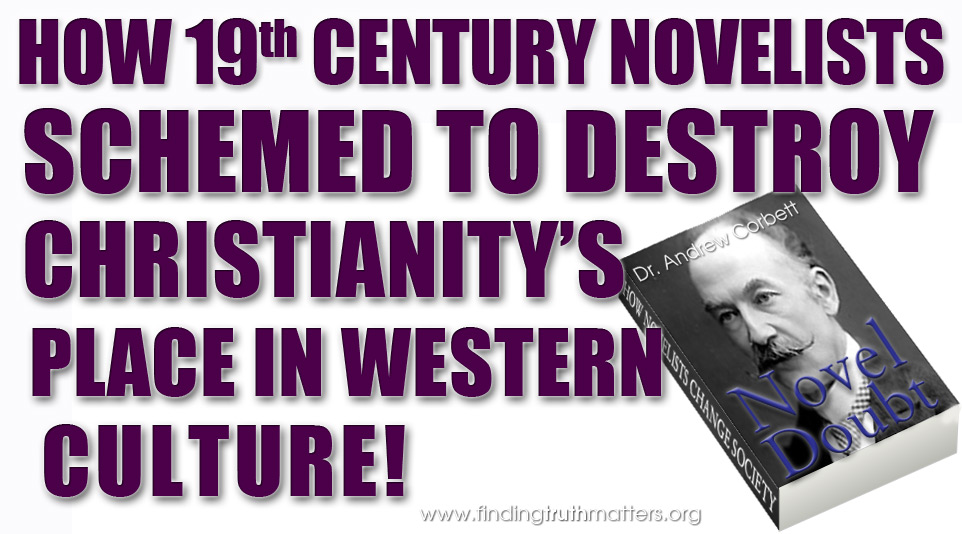 Just over a hundred years ago, a group of Trinity College, Cambridge students formed a covert society called the “Midnight Society”. Many of the Society members became professors at Cambridge, while others became famous novelists, playwrights and authors. At a time when Christians generally considered fiction grossly inferior to non-fiction (and theologically devotional writings), the members of the Midnight Society were strategically using it. They understood that the values and the morals of a nation could be influenced by the fiction it consumed. And they had a radical agenda…
Just over a hundred years ago, a group of Trinity College, Cambridge students formed a covert society called the “Midnight Society”. Many of the Society members became professors at Cambridge, while others became famous novelists, playwrights and authors. At a time when Christians generally considered fiction grossly inferior to non-fiction (and theologically devotional writings), the members of the Midnight Society were strategically using it. They understood that the values and the morals of a nation could be influenced by the fiction it consumed. And they had a radical agenda…
An example of the general attitude among Christians to fiction is summed up by the nineteenth century author, Hannah More-
“…constant familiarity with works of fiction disinclines and disqualifies for active virtues and for spiritual exercises.”
Hannah More (1870), author of The Shepherd of Salisbury Plain, cited in Murray, p. 5
The Midnight Society included Mathematician turned Philosopher, Bertrand Russell; acclaimed novelist, Thomas Hardy; historian, Lytton Strachey; and some non-Trinity members including George Bernard Shaw and H.G. Wells. There were no formal membership requirements of the Midnight Society except that members had to regard Christianity as irrational and needing to be removed from society. They regarded Christianity’s morals as prudish and even “immoral.”
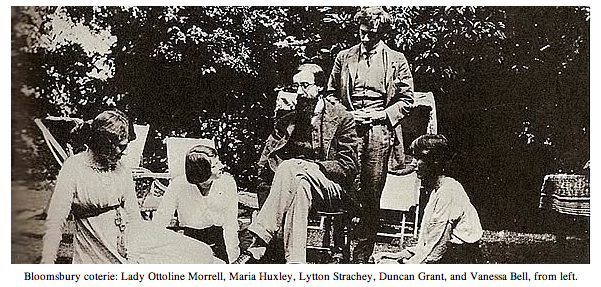
The Midnight Society and its precursor, The Bloomsbury Group, presented itself as a band of elitist humanists who prized creativity, intellectual rigour, and ‘open’ relationships. But in reality this was a smoke-screen for what they were really all about. They were strategically committed to removing all traces of Biblical Christianity from society. They reasoned that this could be done by undermining two Institutions: firstly, The Church, and secondly, Marriage. Destroy these two Institutions and Christianity would be eradicated from society, they reasoned.
According to Iain Murray, the Midnight Society also worked concurrently to make homosexuality socially acceptable. They wanted to ‘baptise’ homosexuality in societal legitimacy by portraying it as natural, moral, and involuntary, in their writing and art.
“Five Trinity men founded the Midnight Society in 1899, and several of them joined the so-called Apostles, a secret society where Christian values were scoffed at and homosexuality approved.”
Murray, p. 50
But the members of this Trinity College Society saw Christianity as their greatest threat to achieving their cultural objectives. They regarded Christianity as hampering the social evolution of a society.
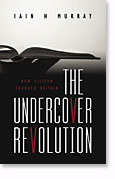 Thomas Hardy, who was the most popular novelist of his day, actually regarded Christianity as “anti-moral”. Although married, he wrote extensively about how marriage was in reality socially destructive and inhibiting to people’s natural urges. As you can imagine, Thomas Hardy’s own marriage to Emma was utterly miserable. It was made all the more miserable by his wife’s thorough conversion to faith in Christ! Added to this, Thomas Hardy regarded Evangelical Christians as “fools.” This clash of opinions in the Hardy household was the cause of immense friction between him and Emma. In addition to this already tense marriage was Thomas Hardy’s repeated unfaithfulness and philandering. After the premature death of Emma, he married one of his mistresses who was 38 years his junior (Murray, p. 42).
Thomas Hardy, who was the most popular novelist of his day, actually regarded Christianity as “anti-moral”. Although married, he wrote extensively about how marriage was in reality socially destructive and inhibiting to people’s natural urges. As you can imagine, Thomas Hardy’s own marriage to Emma was utterly miserable. It was made all the more miserable by his wife’s thorough conversion to faith in Christ! Added to this, Thomas Hardy regarded Evangelical Christians as “fools.” This clash of opinions in the Hardy household was the cause of immense friction between him and Emma. In addition to this already tense marriage was Thomas Hardy’s repeated unfaithfulness and philandering. After the premature death of Emma, he married one of his mistresses who was 38 years his junior (Murray, p. 42).
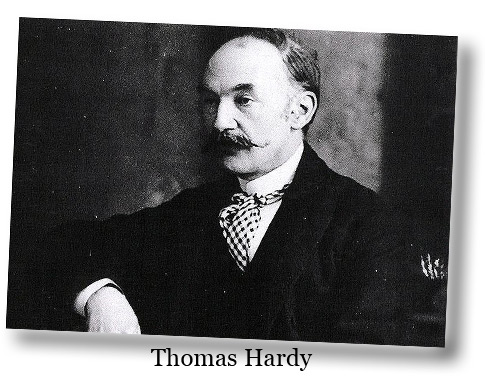
Thomas Hardy despised God. He wrote many (if not most of his) poems about his disappointment with God. It appears that Hardy hated the God he didn’t believe in! It also appears that Hardy’s main objection to God was not His existence, but His gall at telling the people He created how they should behave! This was why Darwin’s new theory of Evolution was so important to the members of the Midnight Society. If they could justify their rampant immorality on the intellectual footing of displacing God as the Originator and Creator, then they were also simultaneously displacing the only One qualified to be The Moral Law Giver as well.
“According to this thinking [Darwinian Evolution], man is not fallen from an original perfection; rather he is advancing towards it.”
Iain H. Murray, p. 23
This Trinity College Society of novelists, poets and academics embraced the newly coined word pertaining to belief in God: agnostic. Even though they were unabashed atheists, they knew that atheism was intellectually indefensible (since making an absolute claim that there was no absolute being was self-refuting) and therefore refused to present themselves as atheists. The idea behind agnosticism (we don’t know if there is a God) was appealing because it didn’t present itself as the very thing they were opposing- dogmatism. They felt justified in their agnosticism because of the recently published Origins Of The Species by Charles Darwin. They considered that Darwin had given them the intellectual high ground. Leslie Stephen, the father of Virginia Woolf and the editor of The Cornhill, said in an essay on agnosticism (An Agnostic’s Apology) that agnosticism was “the religion of all sensible men” (Murray, p. 35).
“There were rivals for the fame of being the most influential writer in the 1920s, not the least among whom were H. G. Wells and George Bernard Shaw. These were not Savile Club or Cambridge men, yet their lives intersected with the Bloomsbury Group at various points and no one was more adept at using novels and plays to advance the anti-Christian mission.”
Murray, p. 51
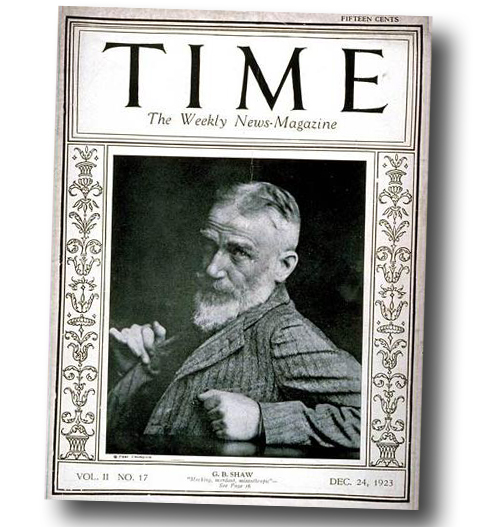 Around the 1870s as this group, then later a Society, was forming, its ideas inspired other prominent writers in a similar vein. Oscar Wilde is an example. Both in his writing, and more particularly in his lifestyle, he flaunted his openly homosexual lifestyle. He was even arrested in the United States for lewdness when he visited there. And without doubt, it was as a result of his flagrantly homosexual lifestyle that led to his premature death at the age of 49.
Around the 1870s as this group, then later a Society, was forming, its ideas inspired other prominent writers in a similar vein. Oscar Wilde is an example. Both in his writing, and more particularly in his lifestyle, he flaunted his openly homosexual lifestyle. He was even arrested in the United States for lewdness when he visited there. And without doubt, it was as a result of his flagrantly homosexual lifestyle that led to his premature death at the age of 49.
Bertrand Russell was a mathematician turned Philosopher and a member of the Midnight Society. He embraced George F. Moore’s new philosophy of “Moral Relativism” which rejected the long held notion in Philosophic Ethics of Moral Absolutes (Murray, p. 49). Russell attempted to argue that it was possible to be virtuous and ethical without any reference to God or moral absolutes. His most famous work, “Why I Am Not A Christian”, gave what he saw as his reasons for unbelief in God. He similarly objected strongly and prolifically to the institution of marriage.
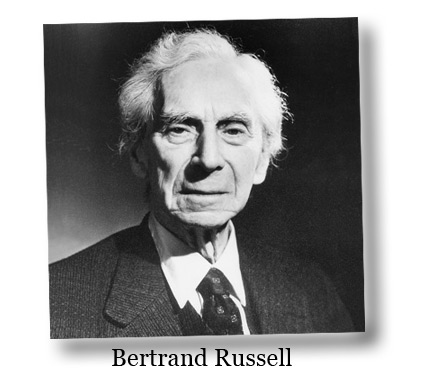
“I want religion to die out, in schools and everywhere.”
Bertrand Russell, from – Carolin Moorhead, “Bertrand Russell, A Life”, 1992:345
Lytton Strachey became the most influential writer of the 1920s. He wrote the book, “Eminent Victorians” (a collection of biographical sketches) in which he made continual “faintly veiled sneers at Christians” (Murray, p. 50). This was published in 1918.
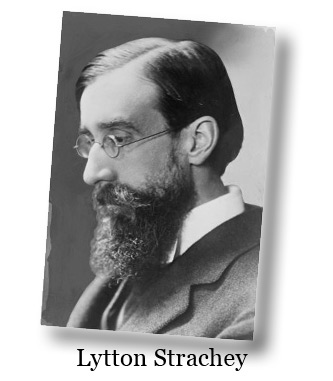 Paul Johnson, “Modern Times: The World From The Twenties To The Eighties” (New York: Harper & Row, 1985, p. 169) said of it-
Paul Johnson, “Modern Times: The World From The Twenties To The Eighties” (New York: Harper & Row, 1985, p. 169) said of it-
“It proved itself far more destructive of the old British values than any legion of enemies. It was the instrument by which Strachey was able ‘to introduce the world to Moorism,’ becoming the most influential writer of the Twenties.”
These writers used fiction to create a model worldview where there was: no reference to God; no shame in sin; no disgrace in promiscuity; and no ultimate reason for living. At first they faced criticism from a shocked public. Established publishers initially refused to print their work – at least unedited. But these fictionalists knew that their views would prevail if they but persisted.
“Our time will come about a hundred years hence.”
-Lytton Strachey
“The truth is that it is unbelief rather than Christianity that depends upon the irrational for its survival.”
Iain H. Murray, p. 7
As the Twentieth century unfolded, the cultural contribution that these authors made took a ghoulish grip over the collective mind of Western Society. While appealing to reason and rationality, their promotion of unbelief was entirely unreasonable and irrational. The bewildering thing is that this intellectual vandalism wasn’t universally and publicly exposed by contemporary Church leaders. Prominent churchmen of the day, such as Charles Spurgeon, were left floundering with little more than cliché responses, jesting and “monkey jibes” as a response to Darwin’s theories and the constant attacks upon the Church from the Midnight Society.
Iain Murray points out in his book, “Undercover Revolution – How Fiction Changed Britain“, how the lives of these novelists and writers were deeply troubled, fraught with relationship breakdowns, and often ending prematurely in utter despair.
“The personal life of H. G. Wells was a parallel to his writing. He was looking for something he could never find: twice married (‘I object to marriages as a general thing’), with numerous other temporary liaisons, his life amounted to ‘an endless search and repeated disappointments’.”
Murray, p. 53
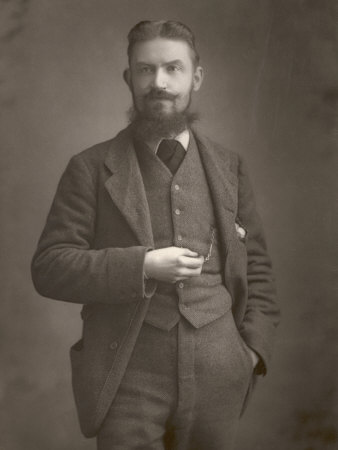
George Bernard Shaw
“It was the common belief of Wells, Shaw, and Russell that sexual relationships have no necessary connection with marriage but, when Wells was attacked in the press for advocating ‘free love’, he thought it necessary to respond with a denial. Russell challenged him on how he could deny in public what his friends all knew he affirmed in private…”
Murray, p. 60
These fiction writers presented their worldview as the true path to happiness and fulfilment. They simultaneously represented Christianity as working against true happiness. While these men strove to present themselves as models of their Anti-Christian philosophy, their lives actually told a completely different story!
“The truth is that the lives of none of these men…will stand examination when it comes to relations with the other sex. They all believed and practised what they called ‘open marriage’. Russell and Wells had a multiplicity of relationships, in, out of, and along with their marriage. And their lives show that sexual immorality never stands alone. Dishonesty is its companion.”
____
Each of these men and women worked to undermine the institutions of the Church and Marriage. They aggressively pitched the Church as “out of date” (failing to move with the times), “irrelevant”, “dogmatic” and “uncaring.” They equally wrote to diminish the role of marriage by pitching it as unnecessary, repressive, and a religious idea that was out of place in a secular society. Bertrand Russell wrote a book called Marriage & Morals in which he argued that “sexual desire had no necessary connection with morality” (Murray, p. 56).
The members of the Society sought to influence the masses of society by becoming influencers of influencers – especially the popular literary figures.
In many respects, the Church was caught off-guard. It could be argued that the Church in the West made several strategic blunders in how it engaged with these fictional writers –
- It had confused the message with the medium. That is, in many respects its methods of delivery and its means of communicating the truth had become out-dated.
- It had largely given up intellectually engaging with society and discouraged its members with glib pastorisms- “Don’t think about it…Christianity is not about the head, it’s about the heart…You think too much…”
- It often did not live up to the moral standards it was seeking to “defend.”
- It failed to make a passionate presentation of the vital connection between the Gospel as a call to personal salvation and the Gospel as a prophetic summons to order the civility of a society. The Gospel, as summed up in the statement: Jesus is Lord, largely failed to be appropriately explained and argued in the public arena with many Christians excusing the uncivil behaviour of non-Christians (thus failing to appreciate that Romans 1:32 calls for Christians to make public their disapproval of these things).
- Many sectors of the Church ran for cover behind a distorted view of what “separation of Church and State” meant. Their cowardice to engage in such issues was masqueraded with pseudo-spiritual language like: We want to stay focussed on the Lord’s work – we don’t want to get involved in political issues… We will not be distracted by non-core-Gospel issues such as homosexuality, abortion or euthanasia…
- And, faced with an inability to know how to engage with the cultural issues raised by these novelists, academics, (then later) film-makers and video-game developers. Fundamentalists responded by a call to boycott such “worldly” genres (note, I am not advocating the general consumption of anti-Christian fiction. But Fundamentalists generally commit the error of dis-engagement with a genre rather than redeeming a genre. A positive example of this might be to compare the Harry Potter franchise with the Narnia franchise).
Few today would realise that the cultural standards of morality were heavily shaped by the fiction writers of the last hundred plus years. Even fewer would make the connection between this and general church attendance today. Some people have seen the rise of ‘Mega-churches’ and have falsely concluded that the Church has actually been taking ground in the West. But the raw data does not support this. Christianity is being solidly, relentlessly, and unfairly attacked by an Enemy who ignores decency – let alone rules.
If we are to advance the Great Commission and ‘take ground’ for the glory of Christ, which will result in precious souls being reconciled to God through Christ, we are to realise that the Gospel of individual salvation must firstly be preached to a public audience who need a frame of reference for the key elements of the Gospel- the forgiveness of sins (therefore, God’s Moral Law should govern the behaviour of a society and set the standard for right and wrong and establish the need for justice), the Saviour (therefore, the uniqueness of Christ among world religions), the Atonement (therefore, God’s grace alone to save from sins), and the Church (therefore, why Christian Community is imperative to Christian commitment).
Our cause can be greatly aided by learning how to use the various forms of media (including text) to carefully present these concepts and help people to understand their need for the Saviour.
While the Church was generally weak and slow to respond this ‘demoralising’ of Western society, there were some luminaries who thrived and excelled in responding. These include G.K. Chesterton, C.S. Lewis and F.W. Boreham. Arguably (it would be a very short argument), these three men were the most publicly influential Christian writers of the early twentieth century. They each excelled at engaging the public with the truth claims of Biblical Christianity in a popular, winsome fashion. More of this is needed today. But the rules of engagement have changed significantly since these men exercised their craft.
The Midnight Society started out as the minority view but strategically manoeuvred to hold the gate-keeping positions of popular culture: media, academia, journalism, politics and the arts. They understood that public opinion was shaped by being in a position to influence the majority without necessarily being the majority. Their assessment of how to eradicate Christianity from society was profoundly insightful. A century on, and their attacks are now so entrenched in Western Culture that the Church is now the object of ubiquitous disdain and the concept of marriage is becoming farcical with its politicisation by the Gay-lobby as they seek to redefine it with the nonsensical term “Same-Sex Marriage.”
What is urgently called for now is clear thinking, winsome Christianity that engages with popular culture. This commences with local churches recommitting themselves to the Great Commission and implementing Biblical ecclesiology that does not compromise the truths of the Gospel, knows how to evangelise without neglecting Spirit-led corporate worship and Biblical instructional. Too many ‘contemporary’ churches have ‘repackaged’ what church is to a mere performance and show in order to ‘reach out’ to the unchurched. On the other hand, too many traditional churches have neglected evangelism and the charge to teach God’s Word and have instead placed great emphasis on the inappropriately labelled “social justice” issues of poverty, environmentalism, and migration.
There are thousands of local churches who faithfully preach God’s Word, understanding the sacredness of the assembly coming together to worship, and have a desire to genuinely reach out to those for whom Christ died to redeem. But not enough of these Spirit-led, Biblically-faithful, God-ordained and ordered churches appreciate the influence they can play in popular culture.
The Biblical worldview is not merely an alternate way of seeing the world. It is the most accurate description of how the world actually is and is therefore the best framework for understanding the truth. We should therefore not be timid about boldly and prophetically proclaiming God’s Word into the public square. Neither should we be put off by the rhetoric from materialists (as were the original Midnight Society members) which is intentionally designed to sound sophisticated but is both deceptive and irrational.
“Why should you be allowed to impose your religious views on our secular society!” is such an example of this. You will note that this statement actually is a religious view! You’ll also notice that this statement is seeking to impose this view on to others! In fact, any statement about religion and its role is a religious view. When someone attempts to sway another person with that view, they are imposing their view.
Much of the rhetoric used in an attempt to deny Christians a say in cultural issues can be similarly dealt with.
But why does this opposition to Christianity often become so heated? In a recent public forum held at the University of Tasmania in Launceston where I spoke on the issue of same-gender ‘Marriage’, I had several very angry responses including one young man who stood to his feet, yelled obscenities, then stormed out. Christians more than others should recognise what’s driving this hostility.
because they exchanged the truth about God for a lie and worshiped and served the creature rather than the Creator, who is blessed forever! Amen.
Romans 1:25
Romans chapter 1 describes a world were people would rather worship the created than the Creator. It also says that when people object to God’s right over them, they primarily object to His moral commands and end up developing a “debased” mind.
¶ And since they did not see fit to acknowledge God, God gave them up to a debased mind to do what ought not to be done.
Romans 1:28
The Roman church was established in the seat of the Empire. The then Emperor at the time of its writing was one of the most godless, evil, ruthless rulers in human history. The list of sins recorded in Romans 1 reads like a “Rap Sheet” of the Emperor’s sins. But it concludes with a subtle charge to Christians to make their disapproval known.
Though they know God’s decree that those who practice such things deserve to die, they not only do them but give approval to those who practice them.
Romans 1:32
Our public disapproval of created people mocking the Creator with their worship of their sexual proclivities is not unreasonable. The greatest epistle on the theology of personal salvation opens with a forthright statement of such disapproval. It is therefore possible for Christians to speak to “political” issues such as sexual immorality, in-utero infanticide, and euthanasia while maintaining a passionate appeal for lost sinners to be reconciled to God, their only possible Saviour.
But to do this may require a new level of creativity. The literary engagement of Chesterton, Lewis and Boreham was appropriate for its day, but a fresh breed of Christian fictional writers is now called for to be able to engage our contemporary culture in a genre they easily relate to. Writers such as Sigmund Brouwer are already among this new breed but several more world-class Christian novelists are needed. But along with these novelists, we need Christian academics who know how to think and teach rationally so that they can engage the claims being made by pop philosophers who seek discredit Church and marriage. We need politicians who know how to withstand immoralists and defend civility. We need film-makers who understand the use of images to tell a story that is supportive of the Biblical worldview.
But most importantly, in countering the seeds sown by this original band of new atheists over a century ago, we need pastors who know how to pastor and disciple these novelists, academics, politicians and film-makers who can build strong local churches that courageously inspires their members to be confident ambassadors of the Redeeming Creator. If we can do this, the Church will become trustworthy (although it may continue to be despised by the unregenerate), Marriage will be honoured by all (Hebrews 13:4), people will be genuinely saved and discipled, culture will think twice before it attempts to demean Christ’s standards, and in one hundred years established churches will be celebrating three digit birthdays, new churches will be birthed for the right reasons, clear thinking will be modelled by Christians in all spheres of public life.
There really is nothing “new” about the “new atheists”, but there needs to be something very new when it comes to how we respond to them.
© Dr. Andrew Corbett
24th June 2011
https://vimeo.com/25929565
How Novel Ideas Shape Society from Dr Andrew Corbett
1 Comment
Submit a Comment
-
Sale!

5 Things We Need To Do To Break Our Church’s 200 Barrier, Premium Audio
Original price was: $1.75.$0.95Current price is: $0.95. -
Sale!

A Morning With Izaak Walton – The Compleat Man, Premium Audio
Original price was: $1.75.$1.25Current price is: $1.25. -
Sale!
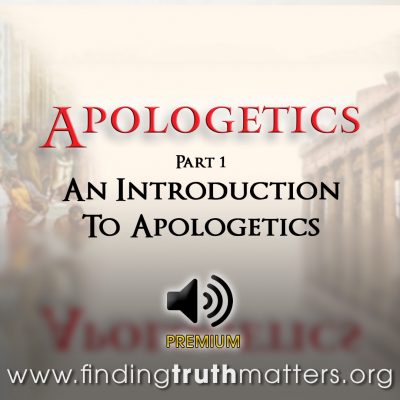
Apologetics Part 1 – Introduction To Apologetics, Premium Audio
Original price was: $1.75.$0.95Current price is: $0.95. -
Sale!
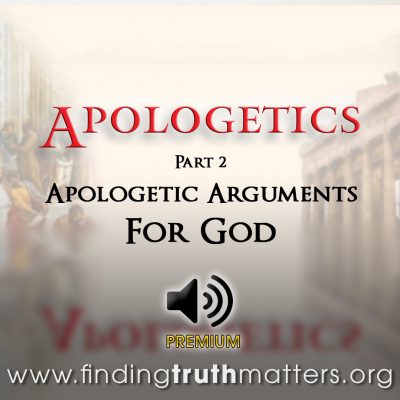
Apologetics Part 2 – The Apologetic Arguments For God, Premium Audio
Original price was: $1.75.$0.95Current price is: $0.95.









































I was just reading about Virginia Woolf and stumbled across the Midnight society, and I am absolutely fascinated by it for some reason. I love Cambridge and I love this article, so thank you for it!